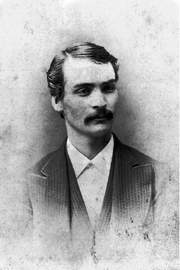I thought I'd go ahead and put our entire Christmas program line-up here, complete with narration so that in the future, if other choir directors are looking for ideas for their own ward choirs, this may be useful. Also, for the benefit of my choir, the last two songs, "God Loved Us So He Sent His Son" and "Carol of Joy" have links to hear the entire piece. And "Come to See Jesus the King" (SSA) has a link to a site where you can listen to a preview of the piece.
Come into His Presence with Singing
By Cindy Berry
Narration: And it came to pass in those days, that there went out a decree from Cæsar Augustus, that all the world should be taxed. And all went to be taxed, every one into his own city. And Joseph also went up from Galilee, out of the city of Nazareth, into Judæa, unto the city of David, which is called Bethlehem; (because he was of the house and lineage of David:) To be taxed with Mary his espoused wife, being great with child. (Luke 2:1-5)
When Joseph Went to Bethlehem
Arr. Larry Beebe
Narration: And so it was, that, while they were there, the days were accomplished that she should be delivered. And she brought forth her firstborn son, and wrapped him in swaddling clothes, and laid him in a manger; because there was no room for them in the inn. (Luke 2:6-7)
Away in a Manger
arr. Mack Wilberg
Narration: And there were in the same country shepherds abiding in the field, keeping watch over their flock by night. And, lo, the angel of the Lord came upon them, and the glory of the Lord shone round about them: and they were sore afraid. And the angel said unto them, Fear not: for, behold, I bring you good tidings of great joy, which shall be to all people. For unto you is born this day in the city of David a Saviour, which is Christ the Lord. And this shall be a sign unto you; Ye shall find the babe wrapped in swaddling clothes, lying in a manger. And suddenly there was with the angel a multitude of the heavenly host praising God, and saying, Glory to God in the highest, and on earth peace, good will toward men. (Luke 2:8-14)
Far Far Away on Judea’s Plains
Arr. Amy Dalton
Narration: And it came to pass, as the angels were gone away from them into heaven, the shepherds said one to another, Let us now go even unto Bethlehem, and see this thing which is come to pass, which the Lord hath made known unto us. And they came with haste, and found Mary, and Joseph, and the babe lying in a manger. (Luke 2:15-16)
By Kristen Allred
Narration: And when they had seen it, they made known abroad the saying which was told them concerning this child. And the shepherds returned, glorifying and praising God for all the things that they had heard and seen, as it was told unto them. (Luke 2: 17, 20)
Arr. Daniel McDavitt
Narration: The prophet Gordon B. Hinckley said, “My heart is subdued when I think of the great love of my Heavenly Father. How grateful I am to know that God loves us. The incomprehensible depth of that love found expression in the gift of His Only Begotten Son to come into the world to bring hope into our hearts, to bring kindness and courtesy into our relationships, and above all to save us from our sins and guide us on the way that leads to eternal life.
“When all is said and done, when all of history is examined, when the deepest depths of the human mind have been explored, nothing is so wonderful, so majestic, so tremendous as this act of grace when the Son of the Almighty, the Prince of His Father’s royal household, He who had once spoken as Jehovah, He who had condescended to come to earth as a babe born in Bethlehem, gave His life in ignominy and pain so that all of the sons and daughters of God of all generations of time, every one of whom must die, might walk again and live eternally. He did for us what none of us could do for ourselves.” (Gordon B. Hinckley, “The Wondrous and True Story of Christmas,” Dec. 2000 Ensign.)
Music by Dan Forrest, Lyrics by Eileen Berry

